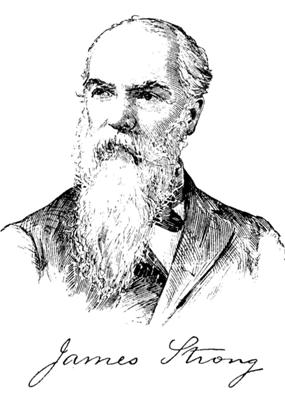Why doesn't Strong's Exhaustive Concordance include your definition of pais?

James Strong, 1822-1894
Thanks for such an interesting question about the meaning of pais. Strong’s Concordance was published in 1890. His exhaustive alphabetical listing allows students to quickly cross-reference every English word in the King James Version. The listing of English words is the exhaustive part.
Strong’s Concordance also contains a brief Bible Dictionary which is not exhaustive. The Bible Dictionary lists some but not all meanings of words as Strong understood them in the 19th century. It would be impossible to list in one book, every meaning of every Hebrew, Aramaic and Greek word in the Bible.
Strong’s word definitions are a starting point, not the ending point to define the meaning of words in Hebrew and Greek. Anyone who makes Strong’s Concordance his definitive authority short-circuits his ability to understand the Bible.
When buying real estate, the most important factors are, Location, Location, Location. When studying the Bible, the most important considerations are, Context, Context, Context. Cultural, doctrinal, historical, linguistic, literary and religious context impact the meaning of words.
Strong gives bare-bones definitions not intended to be absolute or conclusive. In general, Strong’s definitions do not consider the meaning of Biblical words used as figures of speech, metaphors, idiomatic expressions, references to historical events, culturally specific phrases and possible alternative meanings.
Hebrew, Aramaic and Greek words used in Biblical times often conveyed cultural nuances which are unfamiliar to people many centuries later who do not speak, read and write the Biblical languages.
Strong’s Concordance is a very useful tool for doing quick checks on the meaning of words. But please do not end your study by checking Strong’s. Dr. Strong never intended his work as the be all-end all for defining Biblical words. There are many other helpful resources with excellent Bible study information which you can access from our eDisciples page.
To help readers understand the meaning of the Greek word, pais, I have provided examples of meaning which define the word as it was used in ancient times, here and here.
Return to
Gay Christian 101 Home Page.
Comments for Why doesn't Strong's Exhaustive Concordance include your definition of pais?
|
||
|
||
|
||
|
||





